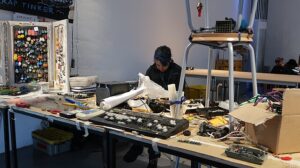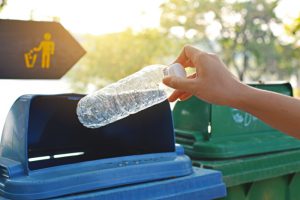This month we’re focusing on a topic that has had lots of airtime in the last few years: how to reduce plastic use. We know that plastics are a huge problem and we’ve all seen emotive images of polluted beaches and suffering animals. We’ve even seen the stats – around 8 million pieces of plastic end up in our oceans every day. But how do you turn that awareness into action? Understanding how to change behaviour is vital to making a difference. Whether you’re engaging your residents, employees or students, Jump’s model of behaviour change can turn that concern about plastics into tangible and effective change.
SMART targets
You’ve probably already heard of the term ‘SMART targets’, but the reason it’s so prevalent is that it works! SMART stands for specific, measurable, achievable, realistic and timely. Each of these are important when trying to engage your people to reduce their plastic use.
Whilst Plastic Free July is a brilliant campaign, the thought of making such a big change can often feel overwhelming. Rather than ask your people to ‘go plastic free this month’, encourage them to make their own pledges and focus on specific behaviours they can achieve. Some examples from our community at Nottingham Trent University include “I will only take a reusable bottle to work instead of buying new plastic ones everyday” and “buying food products from stores in paper and not plastic bags”.
Rewarding action and recognising champions
The second element to successfully engaging people to reduce plastic use is to reward action and celebrate your champions. Incentives can provide the final ‘push’ needed to encourage someone to make a change, whilst for others simply having their efforts recognised is enough. Better still, align rewards with the behaviour that you’re hoping to motivate, such as plastic free kits and reusable cups!
Communicate how to reduce plastic use
Finally, communicate the successes of your people! We are all motivated by real-life stories featuring people we relate to. So, sharing the stories of your colleagues’ success is a great tool, especially with so many of us working remotely. Inspiring people to reduce plastic use at home can translate into change in an office environment.
Plastics have featured heavily in many of our engagement programmes and our clients are seeing tangible results. Staff at Bournemouth University have diverted 355kg of coffee cups from landfill by switching to reusable cups. Meanwhile, promoting the University of Reading’s Sustain-IT bottle has seen 54,550 single use plastic bottles avoided in the last 2 years.
If you’d like to learn more about how Jump can help you reduce plastic use and engage your people then contact us for a quick 15 minute demonstration of our platform or read more in one of our case studies.








